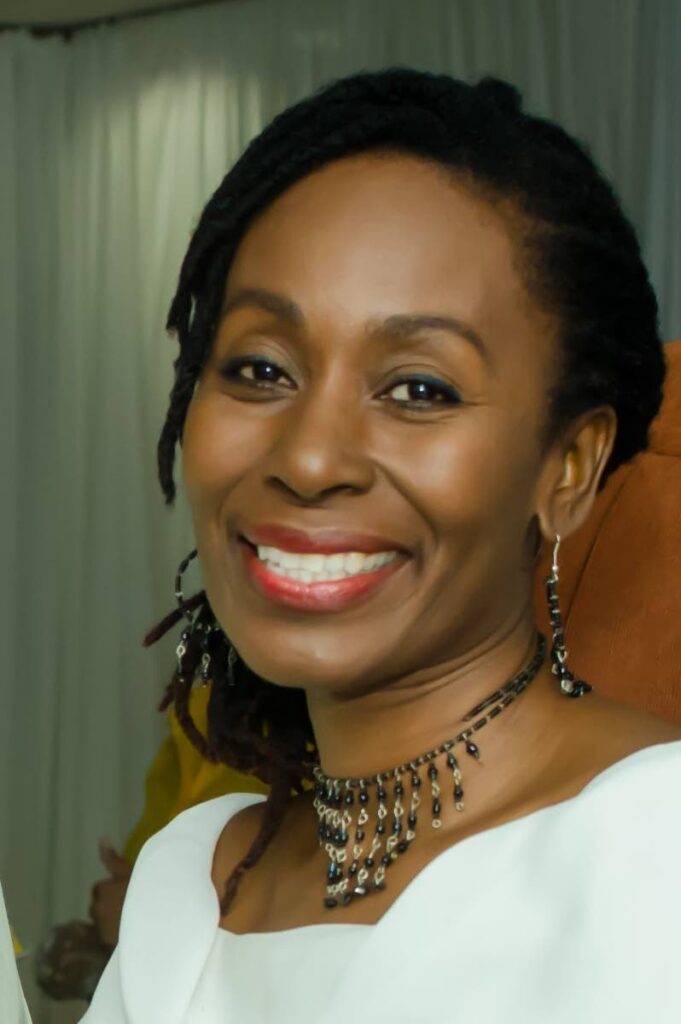More than prayers

Culture Matters
DARA E HEALY
AN INTERESTING confluence of events happened this week. We paid respects to the Spiritual Shouter Baptist community, acknowledging the obstacles they overcame to earn our acceptance and inclusion.
And, once again, thousands of little heads bent over desks in a decades-old ritual established to chart a path for their lives and future careers. How amazing to watch them, so articulate and confident, talking about successfully completing the Secondary Entrance Assessment (SEA) exam.
It is said that a significant number of people in TT believe in a higher spiritual power.
Our spiritual and religious practices are pathways to bringing us closer to the divinity that we all possess. Belief systems call on us to live kinder, less judgmental, more open lives.
Prayer is an essential component of tapping into divine understanding. The act of praying is less about surrendering to a man-made rule and more to do with the quietness of mind to connect with our inner consciousness.
We all have this inner voice, whether telling us not to drive down that street or to stay home tonight. Thus, debates about prayer versus leadership, the law, police...are all a waste of our collective time and serve little purpose beyond filling news space and caressing egos.
The innocent, hopeful children I saw on the news need more. Cliches about the uncertainty of the world they are stepping into are becoming increasingly real.
For instance, this week, fears were raised about the breakneck pace at which research into artificial intelligence (AI) is taking place.
Significantly, concerns were voiced by some of the major players in the world of technology. In an open letter to policymakers, signatories warned that lack of global regulation of AI could lead to the creation of “ever more powerful digital minds that no one – not even their creators – can understand, predict, or reliably control.”
Perhaps their warning is not too late.
Already, bright minds like the ones I saw on television are being damaged by lack of regulation in the digital sphere.
For instance, although social media companies are aware of the negative impact of their content on children and young adults, it often requires a whistleblower to force them to adopt a socially conscious approach to their platforms.
Globally, young people have died because social-media algorithms constantly shoved content at them that glorified, or worse, provided clear instructions on suicide, self-harm or extreme dieting.
One of the young people being interviewed after SEA declared that she intended to “live on the internet” now that she had free time. Many also indicated their intention to “play games.”
Decades ago, we relinquished control over the content being shown in our living rooms. “Too expensive to produce local programming,” we were told. Ideological concepts like Gayelle struggled.
Today, it is common at the clinic, on public transportation or in coffee shops to see children on phones or tablets captivated by foreign educational programmes.
Devices are everywhere, yet we are not in control of the media that our children are being fed. This translates into entire generations being brought up with barely any ancestral connection to our indigenous stories. It makes fostering a national sense of belonging even more difficult.
Covid19 added another, sinister dimension to this scenario. Unable to attend school physically, many had to cope with online learning and consequences such as isolation and erosion of social skills. Worse, many young people were confined to dysfunctional family realities, from abuse to parental neglect and criminal activities. In lockdown, they had little opportunity for relief or even escape.
Thus the SEA exam is a relatively small challenge in comparison to the issues that young people currently face. Many do not have a voice in decisions about halting the deterioration of our climate and natural resources. Conversations about sexuality and gender fluidity are not even part of their educational experience. And the prevalence of abuse of children (and babies) by adults in their lives is inconceivable.
The writers of the open letter on AI called on officials to make “today’s powerful, state-of-the-art systems more accurate, safe, interpretable, transparent, robust, aligned, trustworthy and loyal.”
This may also be a mandate for our leaders – of faith or otherwise – to ensure that society works to protect and support the faces I watched on television.
Let us not dull the light in their eyes because of our inaction. This I pray.
Dara E Healy is a performance artist and founder of the Indigenous Creative Arts Network – ICAN


Comments
"More than prayers"